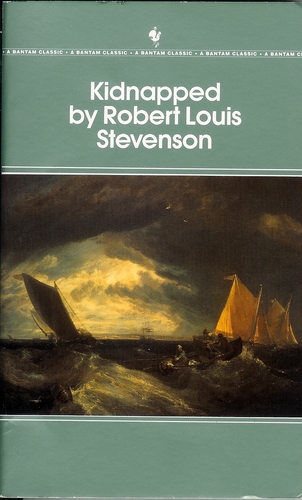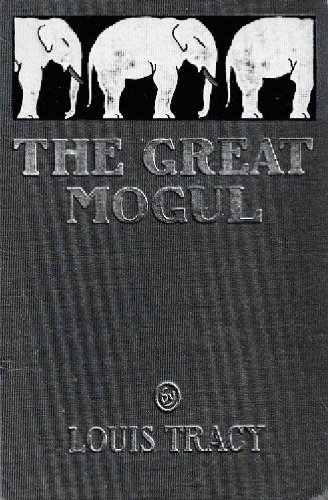|
Strange Case of Dr Jekyll and Mr Hyde is the original title of a novella written by the Scottish author Robert Louis Stevenson and and first published in 1886. The work is commonly known today as The Strange Case of Dr Jekyll and Mr Hyde or Dr Jekyll and Mr Hyde. It is about a London lawyer named Gabriel John Utterson who investigates strange occurrences between his old friend, Dr Henry Jekyll, and the misanthropic Edward Hyde.
The work is known for its vivid portrayal of a split personality, split in the sense that within the same person there is both an apparently good and an evil personality each being quite distinct from the other. The novella's impact is such that it has become a part of the language, with the phrase "Jekyll and Hyde" coming to mean a person who is vastly different in moral character from one situation to the next.
Strange Case of Dr Jekyll and Mr Hyde was an immediate success and is one of Stevenson's best-selling works. Stage adaptations began in Boston and London within a year of its publication and it has gone on to inspire scores of major film and stage performances.
Plot:
Gabriel John Utterson, a lawyer, is on his weekly walk with his relative Richard Enfield, who proceeds to tell him of an encounter he had last night while coming home late at night (it is not known what he is coming home from). The tale describes a sinister figure named Mr Hyde who tramples a young girl, disappears into a door on the street, and re-emerges to pay off her relatives with a cheque signed by a respectable gentleman for 100 pounds. Because both Utterson and Enfield disapprove of gossip, they agree to speak no further of the matter. It happens, however, that one of Utterson?s clients and close friends, Dr Henry Jekyll, has written a will transferring all of his property to this same Mr Hyde. Soon, Utterson begins having dreams in which a faceless figure stalks through a nightmarish version of London. Puzzled, the lawyer visits Jekyll and their mutual friend Dr Hastie Lanyon to try to learn more. Lanyon reports that he no longer sees much of Jekyll, since they had a dispute over the course of Jekyll?s research, which Lanyon calls ?unscientific balderdash?. Curious, Utterson stakes out a building that Hyde visits, which, it turns out, is a filthy shack attached to the back of Jekyll?s home.
Encountering Hyde, Utterson is amazed by how ugly the man seems, as if deformed, though Utterson cannot say exactly how this is so. Much to Utterson?s surprise, Hyde willingly offers Utterson his address. Jekyll tells Utterson not to concern himself with the matter of Hyde. A year passes uneventfully. One night, a servant girl witnesses Hyde beat a man to death with a heavy cane - MP Sir Danvers Carew, also a client of Utterson. The police contact Utterson, who suspects Hyde of the murder. He leads the officers to Hyde?s apartment, feeling a sense of foreboding amid the eerie weather (the morning is dark and wreathed in fog). When they arrive at the apartment, the murderer has vanished, but they find half of the cane (described as being made of a strong wood but broken due to the beating) left behind a door. It is revealed to have been given to Jekyll by Utterson. Shortly thereafter, Utterson again visits Jekyll, who now claims to have ended all relations with Hyde. Jekyll shows Utterson a note, allegedly written to Jekyll by Hyde, apologizing for the trouble he has caused him and saying goodbye. That night, however, Utterson?s clerk points out that Hyde?s handwriting bears a remarkable similarity to Jekyll?s own.
For a few months, Jekyll reverts to his former friendly and sociable manner, as if a weight has been lifted from his shoulders. Later, Jekyll suddenly begins to refuse visitors, and Lanyon dies of shock after receiving information relating to Jekyll. Before his death, Lanyon gives Utterson a letter, with instructions that he not open it until after Jekyll's death or disappearance. Utterson goes out walking with Enfield, and they see Jekyll at a window of his laboratory; the three men begin to converse, but a look of horror comes over Jekyll?s face, and he slams the window and disappears. Soon afterward, Jekyll?s butler, Mr Poole, visits Utterson in a state of desperation and explains that Jekyll has secluded himself in his laboratory for several weeks, and that now the voice that comes from the room sounds nothing like the doctor?s. Utterson and Poole travel to Jekyll?s house through empty, windswept, sinister streets; once there, they find the servants huddled together in fear. After arguing for a time, the two of them resolve to break into Jekyll?s laboratory.
Inside, they find the body of Hyde, wearing Jekyll?s clothes and apparently dead by suicide. They find also a letter from Jekyll to Utterson promising to explain the entire mystery. Utterson takes the document home, where first he reads Lanyon?s letter and then Jekyll's. The first reveals that Lanyon?s deterioration and eventual death were caused by the shock of seeing Mr Hyde drink a potion and, as a result of doing so, metamorphose into Dr Jekyll. The second letter explains that Jekyll, seeking to separate his good side from his darker impulses, discovered a way to transform himself periodically into a creature free of conscience, this being Mr Hyde. The transformation was incomplete, however, in that it created a second, evil identity, but did not make the first identity purely good. At first, Jekyll reports, he delighted in becoming Hyde and rejoiced in the moral freedom that the creature possessed. Eventually, however, he found that he was turning into Hyde involuntarily in his sleep, even without taking the potion.
At this point, Jekyll resolved to cease becoming Hyde. One night, however, the urge gripped him too strongly, and after the transformation he immediately rushed out and violently killed Sir Danvers Carew. Horrified, Jekyll tried more adamantly to stop the transformations, and for a time he proved successful by engaging in philanthropic work. At a park, he considers how good a person he has become as a result of his deeds (in comparison to others), believing himself redeemed. However, before he completes his line of thought, he looks down at his hands and realizes that he has suddenly once again become Mr Hyde. This was the first time that an involuntary metamorphosis had happened in waking hours. Far from his laboratory and hunted by the police as a murderer, Hyde needed Lanyon?s help to get his potions and become Jekyll again; when he undertook the transformation in Lanyon?s presence, the shock of the sight instigated Lanyon?s deterioration and death. Meanwhile, Jekyll returned to his home, only to find himself ever more helpless and trapped as the transformations increased in frequency and necessitated even larger doses of potion in order to reverse themselves. It was the onset of one of these spontaneous metamorphoses that caused Jekyll to slam his laboratory window shut in the middle of his conversation with Enfield and Utterson.
Eventually, the potion began to run out, and Jekyll was unable to find a necessary ingredient to make more. Ironically, Jekyll learns that this most necessary ingredient was in the first instance of his experiments, sullied. Subsequent supplies are pure and thus lacking the quality that makes the potion successful for his experiments. His ability to change back from Hyde into Jekyll slowly vanished. Jekyll writes that even as he composes his letter he knows that he will soon become Hyde permanently, and he wonders if Hyde will face execution for his crimes or choose to kill himself. Jekyll notes that, in either case, the end of his letter marks the end of the life of Dr Jekyll. He ends the letter saying "This is the end of Dr Jekyll. Goodbye... Good..." . With these words, both the document and the novel come to a close.
|
 Comments (0)
All
Comments (0)
All










